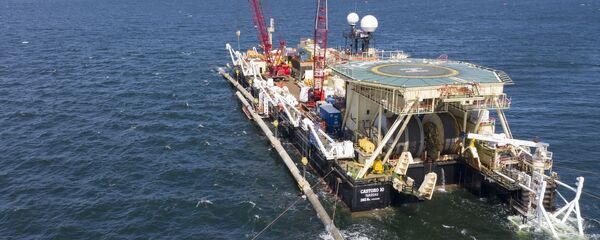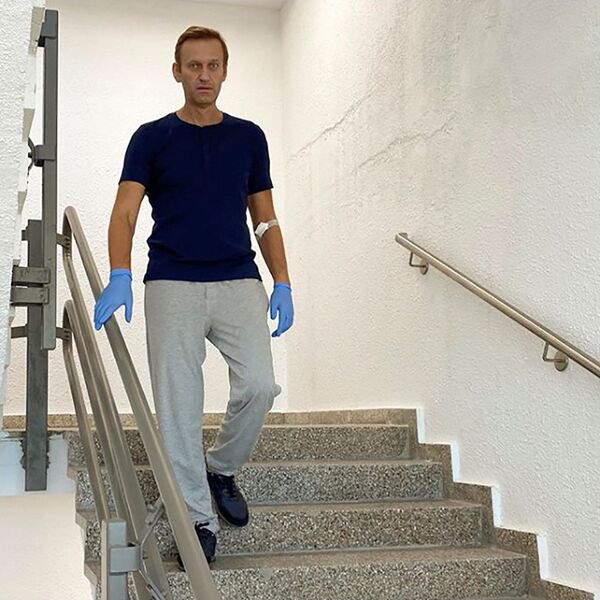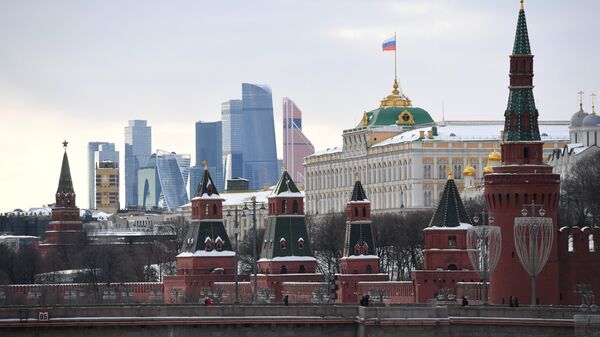Moscow will respond in kind to the European Union's sanctions over the case of Russian opposition figure Alexei Navalny, and these measures may target bilateral ties with Germany and France, Russia's permanent envoy to the bloc, Vladimir Chizhov, told reporters on Saturday.
"Undoubtedly, reciprocal response measures will be taken. Since the introduced sanctions are personal, the response will obviously be personal as well", Chizhov said.
"It is logical to assume that the retaliatory measures may affect Moscow's bilateral relations with Berlin and Paris, because no one conceals that they were behind this step", the diplomat added.
The envoy noted that Russia views the fresh restrictions as "unilateral, unlawful measures, just like all previous retributions". He stressed that the UN Security Council was the only body that had the mandate to introduce sanctions.
Initiators of EU Sanctions Present No Evidence on Navalny Case to Their Allies, Chizhov Says
Chizhov also said that the initiators of fresh EU sanctions had not presented any evidence of the designated Russian officials' alleged involvement in the Navalny case even to their own allies, "either at the time of making the relevant decisions by the European Council or before that".
On Thursday, the EU imposed sanctions on six Russian officials, and a scientific institution over the case with Alexei Navalny. Russia has repeatedly denied any involvement in the alleged poisoning of the opposition figure.
There were still internal disagreements on the issue among those calling for sanctions, the diplomat stated, noting that "it is no coincidence that media first reported about nine individuals targeted by them and then their number was reduced to six".
"The justification for these sanctions, both from a political and legal viewpoint, is very weak, and from a moral viewpoint, it is simply unacceptable", Chizhov said.
The envoy added that these sanctions had "confirmed our worst fears that relations between Russia and the EU will be brought to their lowest level".

"To our deepest regret, this is a deliberate unfriendly step toward Russia. The Council of the EU has damaged relations with our country by [doing] so. Moscow will undoubtedly analyse the situation and act according to its interests", Peskov pointed out.
EU Slaps Sanctions on Russia Over Navalny Case
This followed the EU publishing an official decree that sanctioned the head of the Russian Federal Security Service, the first deputy head of the presidential administration, and several others over the Navalny case.
The sanctions, which entered into force on 15 October, specifically target First Deputy Chief of Staff of the Russian Presidential Executive Office Sergei Kiriyenko, Director of the Federal Security Service Aleksandr Bortnikov, as well as two deputy defence ministers, Pavel Popov and Aleksei Krivoruchko.
In addition, sanctions were slapped on Chief of the Presidential Domestic Policy Directorate Andrei Yarin, the Russian President's Plenipotentiary Representative Sergei Menyailo, and the State Scientific Research Institute for Organic Chemistry and Technology (GosNIIOKhT).

The move was preceded by Russian Foreign Minister Sergei Lavrov on Wednesday pledging that Moscow would retaliate against any EU sanctions over the Navalny case, also accusing the Germans of failing to "provide any facts [related to the opposition figure's alleged poisoning], despite all their international legal obligations".
"We will respond in kind. Yes, this is diplomatic practice, but it is also a diplomatic response", Lavrov underscored.
Navalny Case
Navalny collapsed during a domestic flight from Tomsk to Moscow on 20 August, with his plane making an emergency landing in Omsk, where doctors worked for nearly two days straight to stabilise his condition. On 22 August, a charter flight took him to the Charite clinic in Berlin. There, he gradually recovered before being discharged late last month.
Moscow has repeatedly stressed that Berlin lacks evidence to back up its allegations of Navalny being poisoned with a military-grade nerve agent from the Novichok group, noting that Russian doctors had found no toxic substances in the opposition figure's body
The Russian Foreign Ministry, in turn, underscored that Moscow has taken a "transparent position" on the Navalny case from the very beginning, allowing for him to be transferred to Germany for treatment at the request of his relatives.
Moscow has also slammed the Organisation for the Prohibition of Chemical Weapons (OPCW) for quietly providing the German side with "technical assistance" on the Navalny case without informing Russia, pointing out that the alleged poisoning "took place not in Germany, but in Russia" and that Russia must be party to any objective investigation.




